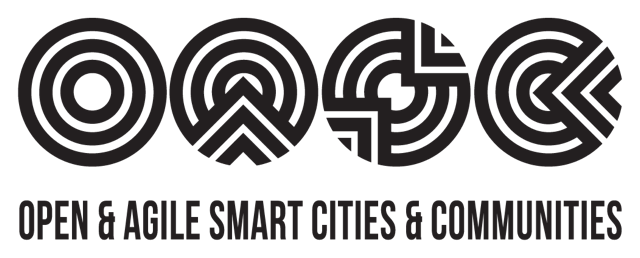The two-day workshop “IoT and Smart Cities & Communities Platform Convergence” brought together the leaders in this field to talk about requirements and standardisation to support IoT and smart cities and communities – by agreeing on the simplest common ground.
While English is the language to exchange with international colleagues and friends, a common language for IoT and smart city platforms and systems is an essential part of what we are missing today. Every platform and sensor talks in its own language, using its own words, while at the same time even inventing new words.
That, in a nutshell, is the challenge cities are facing in their digital transition.
The workshop on IoT and Smart Cities and Communities Platform Convergence (IoT4SCC) gathered stakeholders who create the environment for smart cities to flourish.
The goal was to exchange between city representatives – those who work hard to help their city transition into a digital age – and the representatives of standards developing organisations (SDOs), like the ITU-T, IEC, ETSI, CEN/CENELEC, NIST and so many more, who are working hard to find the common language mentioned in the beginning.
It was also the goal to exchange best practices between on-going projects on European and international scale, such as SynchroniCity, one of five EU IoT Large-Scale Pilots, and SharingCities, one of 15 EIP-SCC lighthouse projects. The workshop also served to strengthen the efforts that these projects are undertaking in amplifying the cities’ voices loud and clear to international decision-makers and to present their approach towards an innovative ecosystem that doesn’t leave the city locked-in by one vendor.
The concept behind these efforts is standards-based innovation and procurement.
How low can we go: Let’s do the standards limbo!
What cities don’t need are ever more new, comprehensive standards. What they need is an up-to-date baseline, a set of standards that support their decisions when trying out and procuring IoT-enabled services for their citizens. OASC calls this baseline set of recommendations “Minimal Interoperability Mechanisms”. They are intended to help cities so they won’t wake up with a bad hangover – noticing that they handed over their wallet to the bartender and have no clue how to get it back. They can ask to get it back of course, but the final decision is not theirs, and it will come at a steep price.
What cities don’t need are ever more new, comprehensive standards. What they need is an up-to-date baseline, a set of standards that support their decisions when trying out and procuring IoT-enabled services for their citizens.
So in order to keep the wallet – that is control over the city’s data, algorithms, IoT sensors, and much more – safe and in their own hands, cities need to know, what they are buying from providers. They need to know, which standards make their legacy systems compatible, and they need to know, if they can easily replace it with other systems.
Standards can help with all this. Such standards have to be the simplest common ground that many cities agree to. Or in other words, everyone involved in the development of smart cities should ask themselves: “How low can we go?”
The IoT4SCC workshop did not provide a single go-to answer that solves all challenges of IoT and smart cities & communities at a whim, but we’ve reached our goals and brought together important decision-makers from cities, SDOs, research and academia as well as NGOs and associations from all over the world to exchange, showcase, debate, and finally, to take the next step.
On behalf of all IoT4SCC organisers, we would like to thank all speakers who presented their work and shared their ideas and visions at the workshop. In short, to all those who made the workshop a success. Thank you!
The dialogue continues at the Connected Smart Cities Conference in Brussels, Belgium, on 17 January 2019, and at IoT Week 2019 in Aarhus, Denmark, 17-21 June.
Author

Martin Brynskov, PhD, is one of the four co-founders and Chairman of the Board of Directors of Open & Agile Smart Cities. He is associate professor at Aarhus University (AU) and research director of AU Smart Cities. Additionally, he coordinates the Danish Smart City Network and chairs working group 1 on use cases of the ITU-T Focus Group on Data Processing and Management to support IoT and Smart Cities & Communities.

